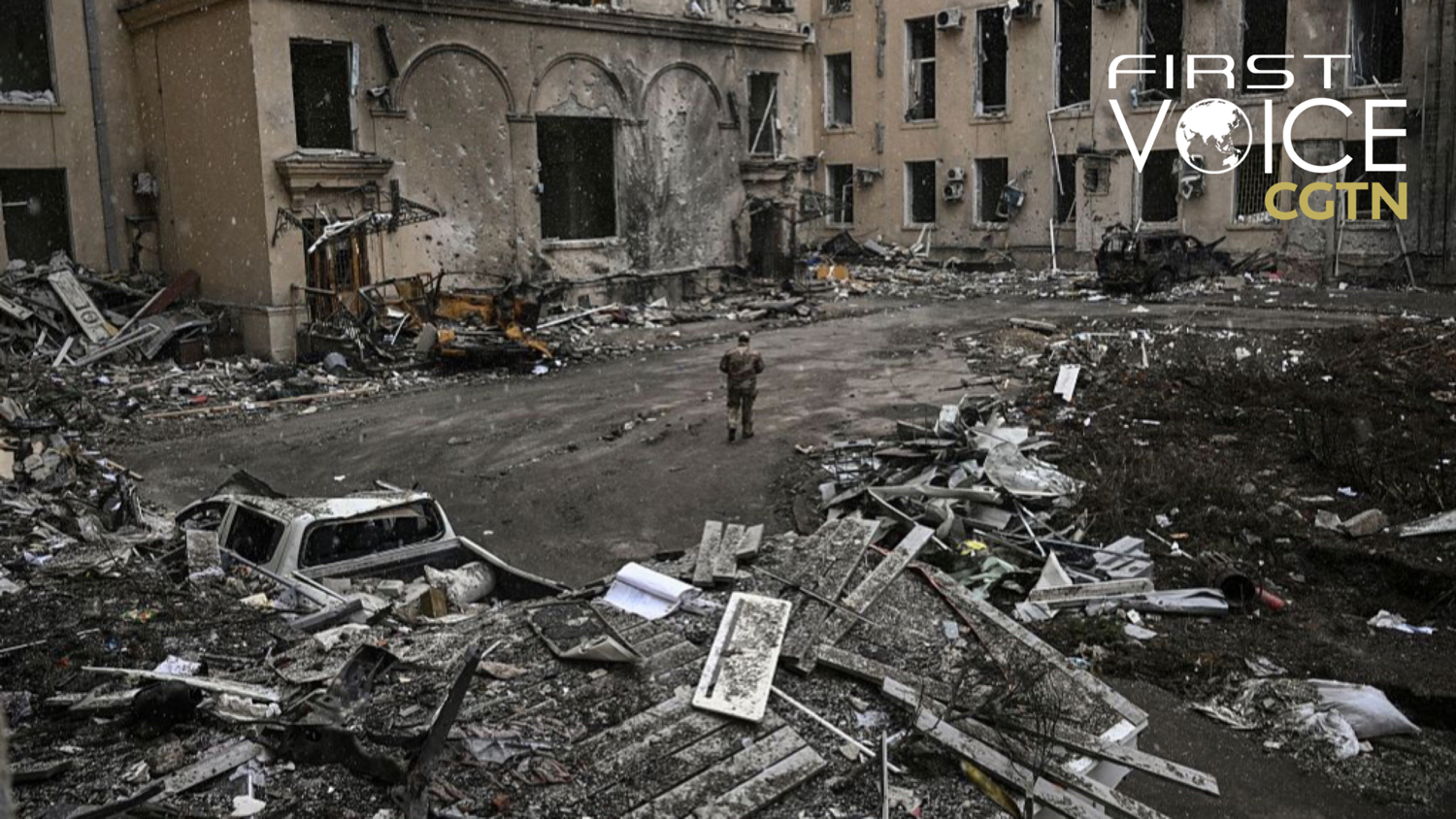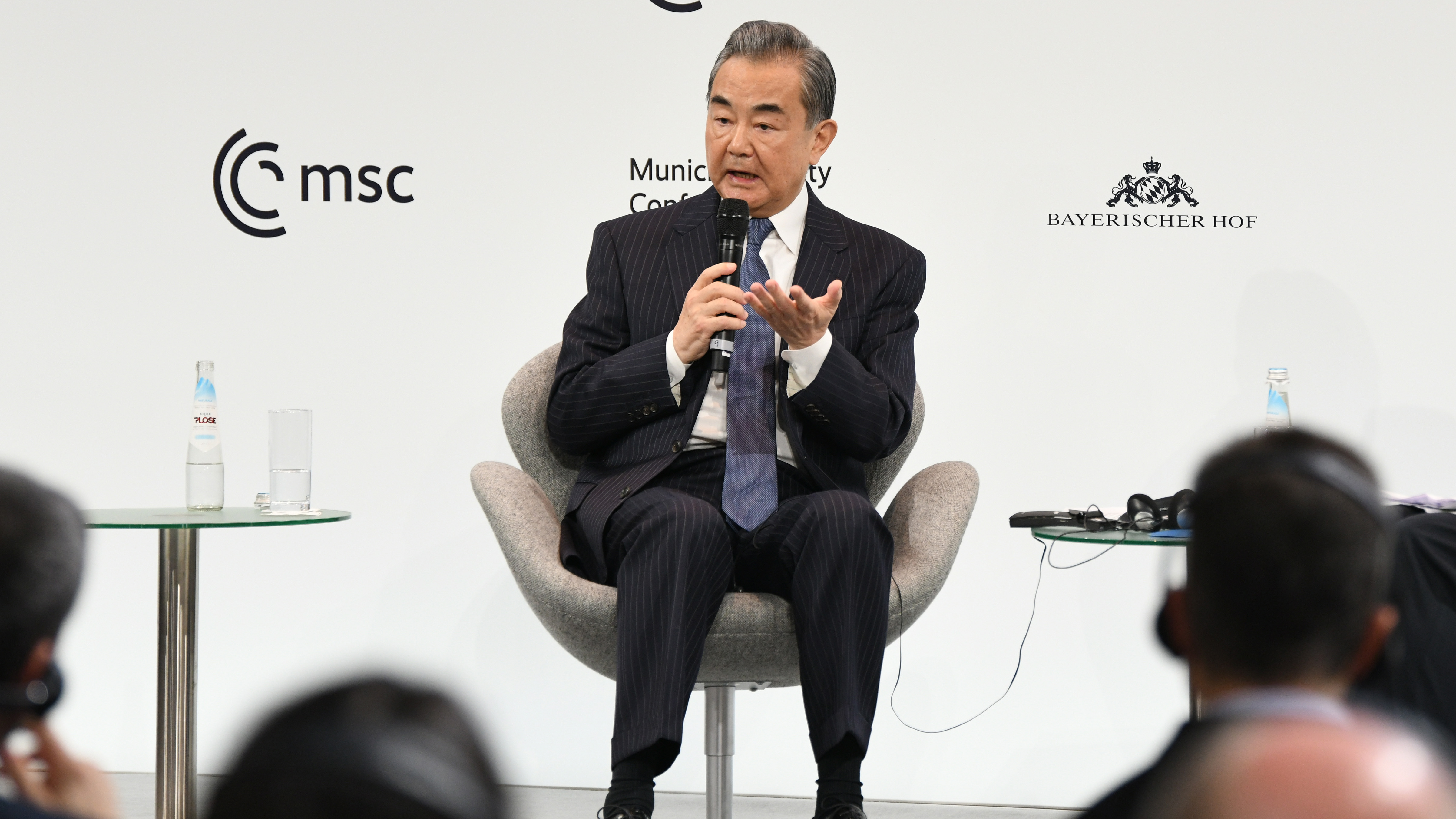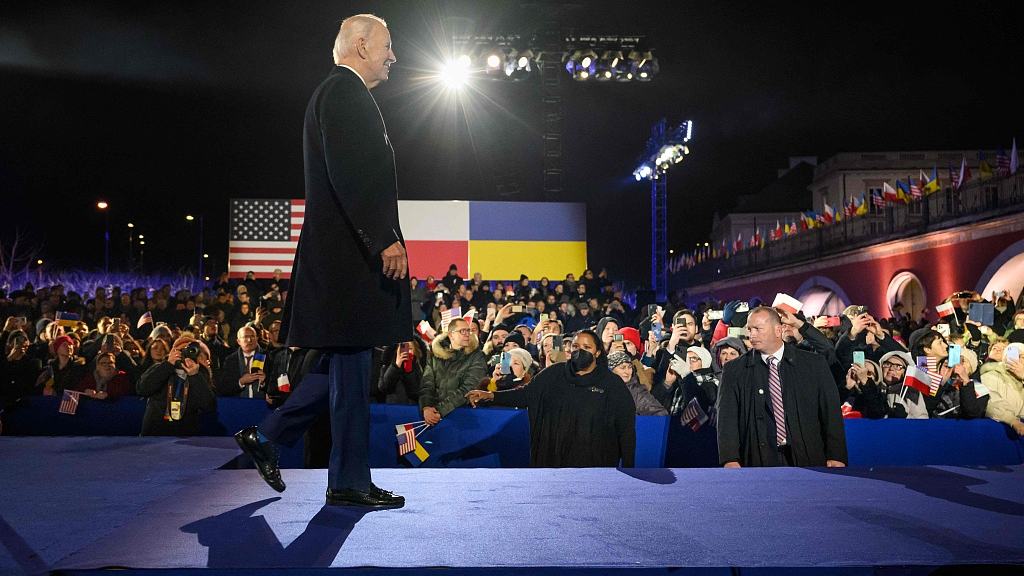
Editor's note: CGTN's First Voice provides instant commentary on breaking stories. The column clarifies emerging issues and better defines the news agenda, offering a Chinese perspective on the latest global events.
On February 25, 2022, one day after the Ukraine crisis began, Chinese President Xi Jinping called Russian President Vladimir Putin saying that the Chinese side supports solving the issue through negotiation between Russia and Ukraine. The then Chinese Foreign Minister Wang Yi, in phone talks with British, French and EU officials, said that China firmly stands for respecting and safeguarding the sovereignty and territorial integrity of all countries and earnestly abides by the purposes and principles of the UN charter.
These same pleas and principles are also guiding China's position on the crisis today. On February 24, the Chinese Foreign Ministry published China's position on the political settlement of the Ukraine crisis. It emphasized that "dialogue and negotiations are the only viable solution to the Ukraine crisis."
"The security of a region should not be achieved by strengthening or expanding military blocs," the document stated, adding that "there is no simple solution to a complex issue" and that "all parties should oppose the pursuit of one’s own security at the cost of others' security."
Peaceful resolution to the Ukraine crisis will indeed be complex and hard. In interviews with Kyiv residents conducted after Wang Yi announced China will publish such document, their reaction is mixed. Some believe that it's good that China is caring about the crisis, other countries understand the situation and that they have no doubt there will be a peaceful resolution. Some believe that peace cannot be achieved as long as there are Russian troops on Ukrainian soil. While some others hold relatively pessimistic view about it as they doubt the Russian leadership's decisions.

Wang Yi, director of the Office of the Foreign Affairs Commission of the Communist Party of China (CPC) Central Committee speaks at the Munich Security Conference, Munich, Germany, February 18, 2023. /Chinese Foreign Ministry
Wang Yi, director of the Office of the Foreign Affairs Commission of the Communist Party of China (CPC) Central Committee speaks at the Munich Security Conference, Munich, Germany, February 18, 2023. /Chinese Foreign Ministry
From the Russian's perspective, the seed of the crisis were planted years ago.
John Mearsheimer, professor of political science at the University of Chicago, wrote in an article for the Economist that "The West, and especially America, is principally responsible for the crisis which began in February 2014." He argues that the crisis actually started at NATO's Bucharest summit in 2008 when the U.S. pushed the alliance to announce that it is absorbing Ukraine and Georgia to be its members. The Russians reacted with outrage and characterized this as an "existential threat," but it was squarely ignored by the United States. Thus, NATO's eastward expansion becomes the root cause of all the troubles that followed.
"Abandoning the Cold War mentality" is the second point mentioned by the Chinese Foreign Ministry. But, for the West and mainly the United States, Cold War mentality has mainly driven the NATO expansion and is the key factor in prolonging the crisis today. The most recent demonstration is U.S. President Joe Biden's surprise visit to Ukraine on the eve of the one-year mark of the Ukraine conflict. He promised another $500 million military aid to the country during the visit, having already approved about $50 billion aid for Ukraine in 2022 alone.
"I can proudly say that our support for Ukraine remains unwavering," Biden said in his visit to Poland afterwards.

U.S. President Joe Biden walks on the stage after speaking at the Royal Warsaw Castle Gardens in Warsaw, Poland, February 21, 2023. /CFP
U.S. President Joe Biden walks on the stage after speaking at the Royal Warsaw Castle Gardens in Warsaw, Poland, February 21, 2023. /CFP
In a recent interview with First Voice, former UN expert Alfred de Zayas said that U.S.'s continued military support escalates the tension and increases the possibility of a direct confrontation between NATO and Russia. "And under those conditions, we are facing apocalypse. Because if we start a third World War with nuclear weapons, no one is going to survive and it's going to impact you," he emphasized. Biden's "unwavering support" would do nothing but lead the world closer to that disastrous point of no return.
China emphasizes strongly that nuclear weapons should not and cannot be used, even the threat of it is not acceptable. "Nuclear weapons must not be used and nuclear wars must not be fought. The threat or use of nuclear weapons should be opposed," Chinese Foreign Ministry stated. It also opposes armed attacks against nuclear power plants or other peaceful nuclear facilities.
German military strategist Helmuth von Moltke once said that "no battle plan ever survived the first contact with the enemy." Military conflict has a way to easily spiral out of anyone's control. Few thought that the Ukraine conflict would've lasted for a year. Throughout the year, the participants have hardened their positions. Aggression could only provoke aggression. And it's the people that suffer the most from it.
The conflict has to end soon. Dialogue and negotiation are the only way out.
(If you want to contribute and have specific expertise, please contact us at opinions@cgtn.com. Follow @thouse_opinions on Twitter to discover the latest commentaries in the CGTN Opinion Section.)